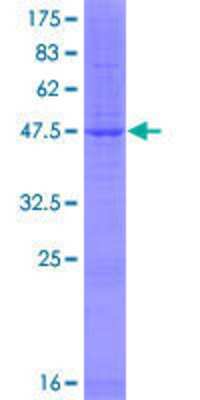PEMT: Proteins and Enzymes
PEMT also known as Phosphatidylethanolamine N-methyltransferase, has 3 isoforms, a 199 amino acid isoform that is 22 kDa, a 236 amino acid that is 26 kDa, and 232 amino acid isoform that is 25 kDa, converts phosphatidylethanolamine to phosphatidylcholine by sequential methylation in the liver and localizes to the endoplasmic reticulum and mitochondria-associated membranes. This protein is being studied for its involvement in ceroid lipofuscinosis, neuronal ceroid-lipofuscinosis, smith-magenis syndrome, spina bifida, orofacial cleft, whiplash, fatty liver disease, liver disease, cystic fibrosis, hepatocellular carcinoma, Alzheimer's disease, gigantism, breast cancer, liver cancer, homocysteine, fibrosis, alcoholism, endometriosis, gastric cancer, and infertility. The protein has been linked to the glycerophospholipid biosynthesis, metabolism, phospholipid metabolism, synthesis of PC, metabolism of lipids and lipoproteins, acetylcholine synthesis, and acetylcholine synthesis pathways where it interacts with CALM1, CALM2, CALM3, ALG5, ALG6, ALG8, EMC3, FEN1, and over 180 other proteins.
Show More
2 results for "PEMT Proteins and Enzymes" in Products
2 results for "PEMT Proteins and Enzymes" in Products
PEMT: Proteins and Enzymes
PEMT also known as Phosphatidylethanolamine N-methyltransferase, has 3 isoforms, a 199 amino acid isoform that is 22 kDa, a 236 amino acid that is 26 kDa, and 232 amino acid isoform that is 25 kDa, converts phosphatidylethanolamine to phosphatidylcholine by sequential methylation in the liver and localizes to the endoplasmic reticulum and mitochondria-associated membranes. This protein is being studied for its involvement in ceroid lipofuscinosis, neuronal ceroid-lipofuscinosis, smith-magenis syndrome, spina bifida, orofacial cleft, whiplash, fatty liver disease, liver disease, cystic fibrosis, hepatocellular carcinoma, Alzheimer's disease, gigantism, breast cancer, liver cancer, homocysteine, fibrosis, alcoholism, endometriosis, gastric cancer, and infertility. The protein has been linked to the glycerophospholipid biosynthesis, metabolism, phospholipid metabolism, synthesis of PC, metabolism of lipids and lipoproteins, acetylcholine synthesis, and acetylcholine synthesis pathways where it interacts with CALM1, CALM2, CALM3, ALG5, ALG6, ALG8, EMC3, FEN1, and over 180 other proteins.
Show More
| Applications: | WB, ELISA, MA, AP |
| Applications: | AC |

